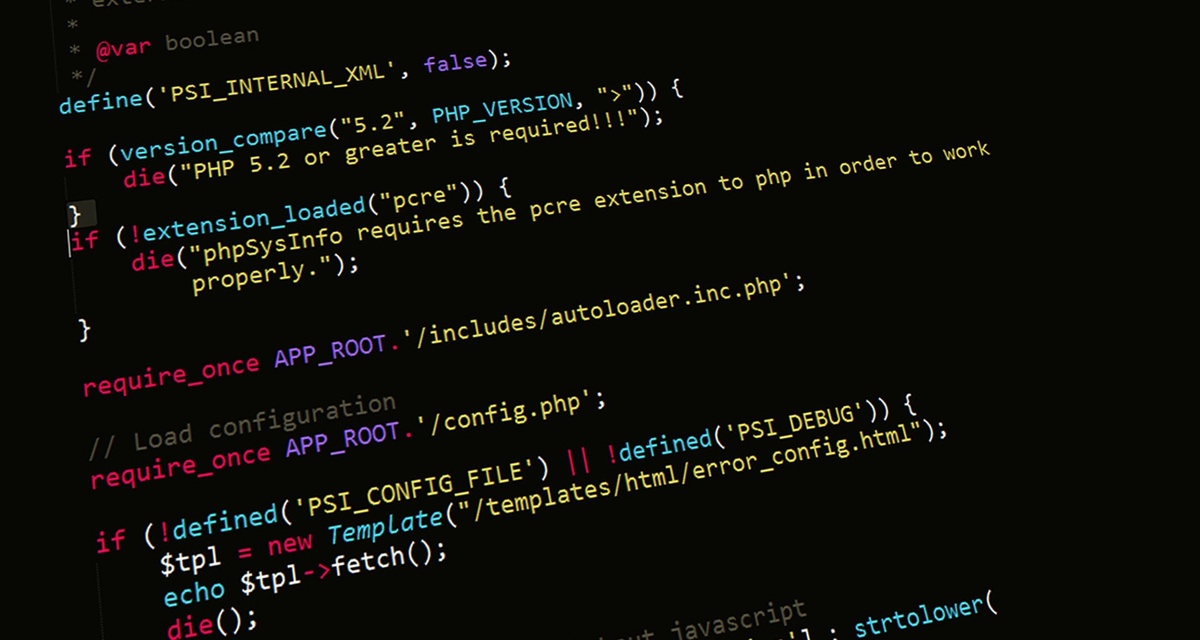In today's digital age, businesses are constantly looking for ways to leverage technology to enhance their operations and improve their overall efficiency. As a result, web development has become a critical aspect of business success, and React, a popular JavaScript library, has emerged as a top choice for building user interfaces.
When it comes to React development, one important decision that businesses face is whether to work with a local or remote development company. Both options have their advantages and drawbacks, and making the right decision requires careful consideration of various factors. In this article, we will explore the pros and cons of local and remote React development companies to help you make an informed choice.
Local React Development Companies
Local React development companies are those that operate within your geographical proximity. They are usually located in the same city or region as your business. Here are some key benefits and considerations when working with a local React development company:
Face-to-face Interaction: One of the primary advantages of working with a local company is the ability to have face-to-face meetings and direct communication. This can be particularly beneficial for complex projects that require detailed discussions and constant collaboration. Being able to sit down with the development team can facilitate a better understanding, efficient decision-making, and quick issue resolution.
Cultural Familiarity: Hiring a local React development company ensures that the team is familiar with the local culture, language, and market dynamics. This can lead to better user experiences and designs tailored specifically to your target audience. Additionally, local developers are often well-versed in local regulations and compliance requirements, reducing potential legal complications.
Time Zone Alignment: Working with a local team means that there is no significant time difference. This can be advantageous for real-time collaboration, as it enables quick response times and minimizes delays. Coordination between teams becomes easier, and project updates can be communicated promptly.
Supporting Local Economy: Choosing a local React development company contributes to the growth of the local economy. By investing in local talent and businesses, you not only support job creation but also foster stronger community ties.
However, there are also considerations to keep in mind when opting for a local React development company:
Higher Cost: Local companies generally come with higher price tags compared to remote alternatives. This is primarily due to the higher cost of living and labor in many developed countries. If you have a tight budget, working with a local company might strain your resources.
Limited Talent Pool: Depending on your location, the availability of skilled React developers may be limited. This can result in longer recruitment processes or even a compromise in the quality of talent. It's important to evaluate the local market's talent pool to ensure you can find a suitable team for your project.
Remote React Development Companies
Remote React development companies, on the other hand, are located in different cities, countries, or even continents. Here are the benefits and considerations associated with working with a remote React development company:
Cost Efficiency: One of the most significant advantages of remote development companies is cost savings. Companies located in regions with lower labor costs can offer their services at more competitive rates. This can be particularly appealing for small businesses or startups with limited budgets.
Access to Global Talent: Remote development companies provide access to a vast talent pool from around the world. You have the freedom to choose from a wider range of developers with diverse skill sets and experiences. This allows you to find the right expertise for your specific project requirements.
24/7 Operations: Depending on the time zone differences, remote React development teams can provide around-the-clock service. This means that work progresses even when your local team is offline. It can result in faster development cycles and quicker project completion.
Scalability: Remote development teams offer flexibility and scalability. As your project grows or requirements change, it's often easier to scale up or down with a remote team. They can quickly onboard additional resources or adjust the team composition to meet your evolving needs.
Diverse Perspectives: Working with a remote React development company allows you to tap into diverse perspectives and ideas. Different cultures and backgrounds can bring fresh insights and innovative approaches to problem-solving, leading to unique and creative solutions.
However, there are also considerations when choosing a remote React development company:
Communication Challenges: Remote teams rely heavily on digital communication channels, such as email, video calls, and project management tools. While technology has made communication easier, there can still be challenges in terms of language barriers, misinterpretation of instructions, and delays in response time due to time zone differences.
Lack of Face-to-Face Interaction: Unlike local companies, remote teams cannot provide the same level of face-to-face interaction. While video calls can bridge the gap to some extent, there may still be a sense of disconnect and reduced personal connection. This can impact collaboration and the ability to build strong relationships with the development team.
Cultural and Language Differences: While cultural diversity can bring benefits, it can also present challenges. Different work styles, business practices, and communication norms may require additional effort to overcome. Language barriers can also affect the clarity of communication and understanding of project requirements.
Time Zone Misalignment: Depending on the location of the remote team, significant time zone differences can pose challenges. It may lead to delays in communication, slower issue resolution, and limited availability for real-time collaboration. It's important to establish clear communication protocols and find overlapping working hours to mitigate these challenges.
Making the Right Decision
When deciding between local and remote React development companies, it's crucial to assess your project requirements, budget constraints, and priorities. Consider the following steps to make an informed decision:
Evaluate Project Scope: Assess the complexity and nature of your project. For large-scale projects that require constant collaboration and frequent meetings, a local development company may be a better fit. For smaller or more straightforward projects, a remote team could be a cost-effective option.
Determine Budget: Consider your budgetary constraints and project funding. Evaluate whether you can afford the higher costs associated with local development companies or if cost efficiency is a priority, making a remote team more suitable.
Assess Required Expertise: Evaluate the specific skills and expertise required for your project. Determine if local Remote developers can fulfill those requirements or if you need access to a global talent pool offered by remote teams.
Communication and Collaboration Needs: Consider the level of communication and collaboration required for your project. If face-to-face interaction and real-time collaboration are essential, a local team may be more suitable. If you can adapt to digital communication channels and time zone differences, a remote team can be a viable option.
Check References and Portfolio: Conduct thorough research on potential companies, whether local or remote. Review their portfolio, case studies, and client testimonials to assess their capabilities and track record of delivering successful React projects.
Communication and Project Management: Regardless of the choice you make, establish clear communication channels, expectations, and project management processes. Regularly communicate project updates, establish milestones, and maintain open lines of communication to ensure transparency and progress.
Ultimately, the decision between local and remote React development companies depends on your project requirements, budget, and priorities. Assess the advantages and considerations outlined in this article, and choose the option that aligns best with your specific needs. By making an informed decision, you can set your project up for success and achieve your desired outcomes.
Consider Long-Term Collaboration: Think about the long-term implications of your decision. If you anticipate ongoing development and maintenance needs, consider whether a local or remote team would be better equipped to provide continued support. Assess factors such as team availability, scalability, and the ability to adapt to changing requirements over time.
Seek Recommendations and Referrals: Reach out to colleagues, industry contacts, or business networks for recommendations and referrals. Personal experiences and insights can provide valuable information about local or remote React development companies, helping you make a more informed decision.
Conduct Interviews and Assess Cultural Fit: If you decide to work with a remote development company, conduct thorough interviews to assess their technical capabilities and cultural fit with your organization. Look for teams that align with your values, communication style, and work ethic. This will contribute to a smoother working relationship and better project outcomes.
Mitigate Risks: Regardless of whether you choose a local or remote React development company, it's important to mitigate risks. Consider drafting a comprehensive contract that clearly outlines project expectations, deliverables, timelines, and dispute resolution processes. Also, establish regular checkpoints and progress reviews to ensure that the development team is meeting project milestones and delivering quality work.
Collaboration Tools and Infrastructure: Evaluate the availability and proficiency of collaboration tools and infrastructure. Whether local or remote, a development company should have the necessary tools and technologies in place to facilitate efficient project management, version control, and communication.
Case Studies and Client References: Request case studies or references from prospective development companies. This will give you insights into their past projects, technical expertise, and client satisfaction. Reach out to their previous clients to inquire about their experience working with the company.
Trust and Transparency: Regardless of the location, prioritize working with a development company that values trust and transparency. Open and honest communication, regular progress updates, and the ability to address concerns and issues promptly are crucial for a successful collaboration.
Conclusion
Choosing between local and remote React development companies requires careful consideration of various factors. Local companies offer face-to-face interaction, cultural familiarity, and real-time collaboration, but may come with higher costs and a limited talent pool. Remote companies provide cost efficiency, access to global talent, scalability, and diverse perspectives, but communication challenges and time zone differences need to be managed.
Evaluate your project requirements, budget, communication needs, and long-term collaboration goals to make an informed decision. Seek recommendations, conduct thorough interviews, and assess cultural fit. Mitigate risks through comprehensive contracts and regular progress reviews.
Ultimately, the right decision depends on finding a development company that aligns with your project goals, values, and budget. With proper research and consideration, you can make the choice that sets your business up for success in React development.


No comments yet